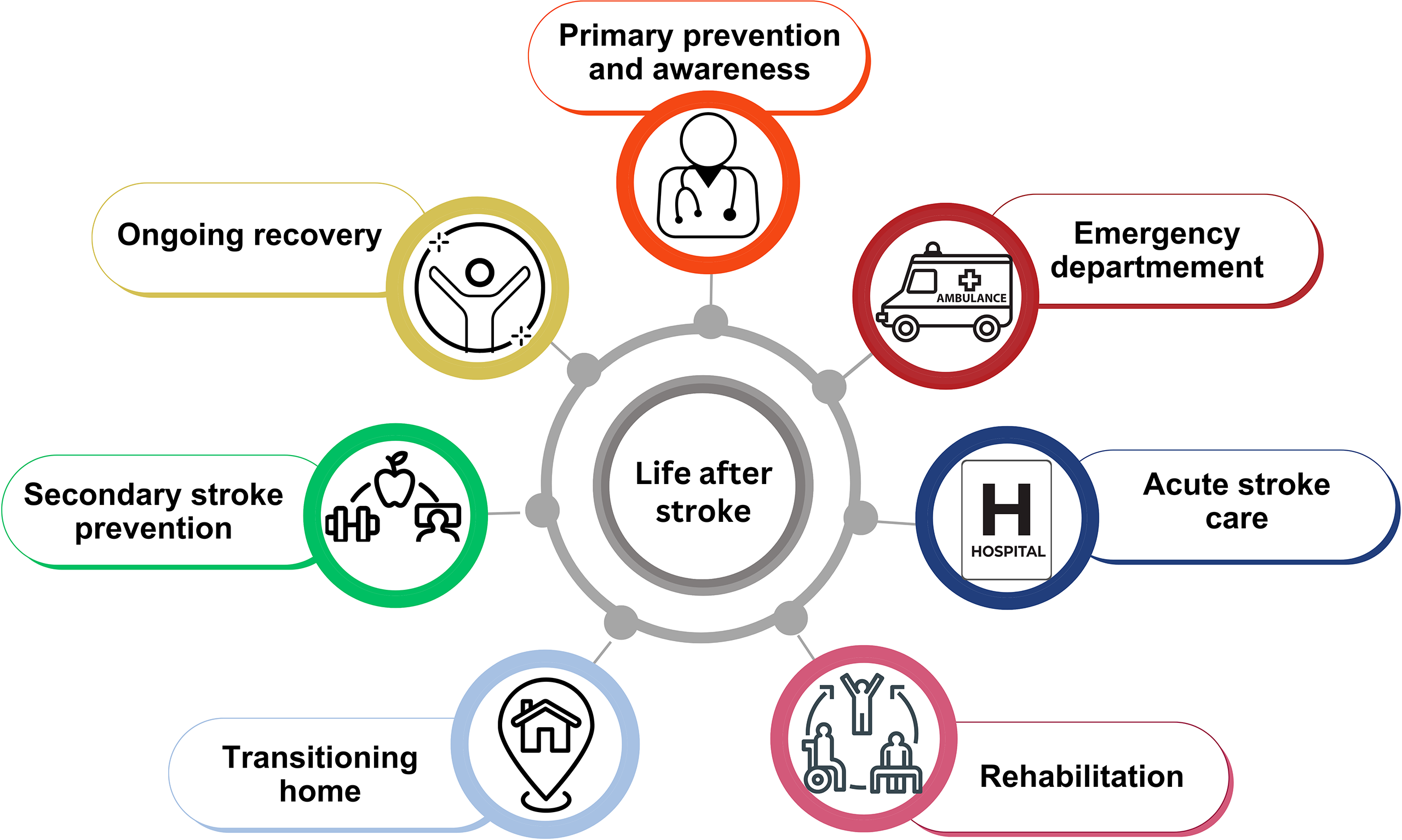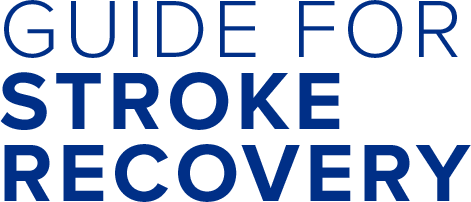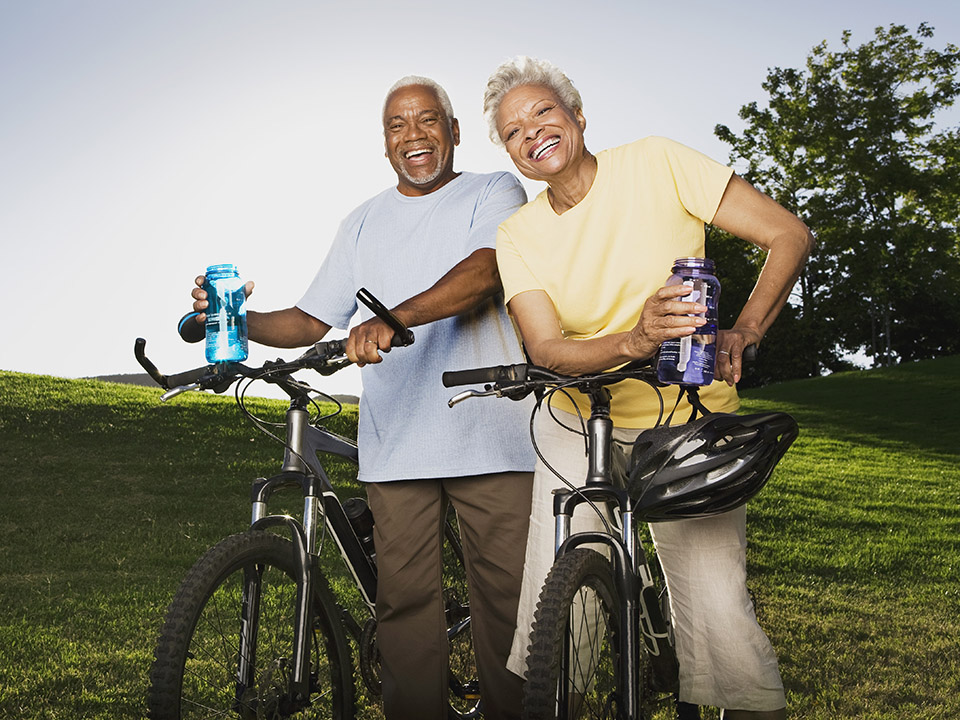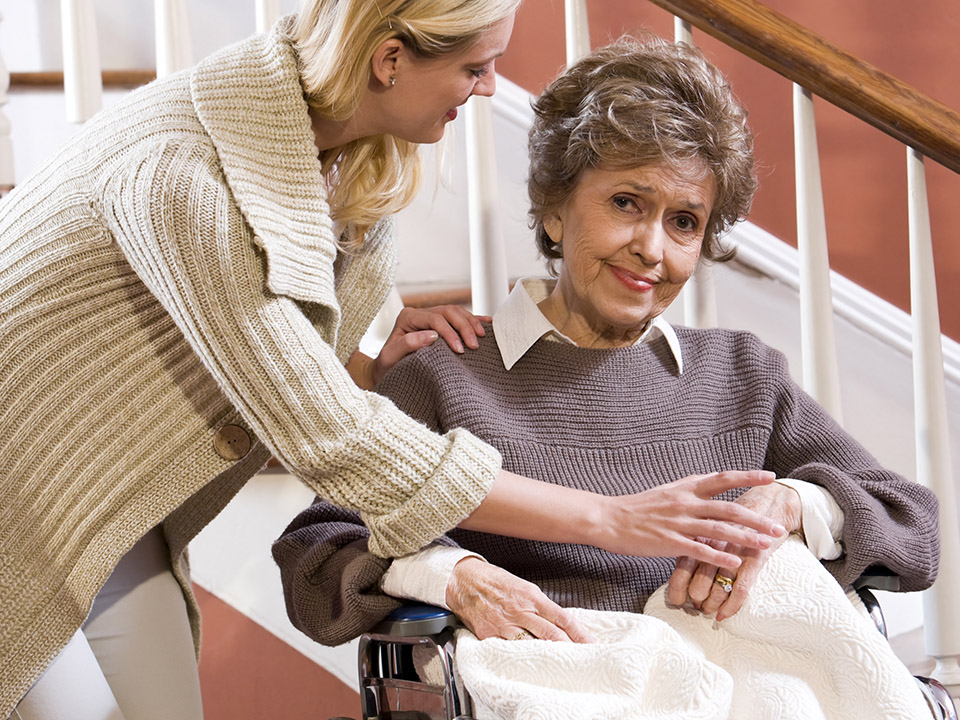There are many stages to your journey to stroke recovery. Each person’s journey is different and not everyone will experience every stage. In your own journey, there will be things you should think about as you recover and get back to life. Click on any part of the journey in the image below to learn more about:
- What will happen
- Who you might see and/or work with
- Where you may go next in your journey
- Where you can find more information







